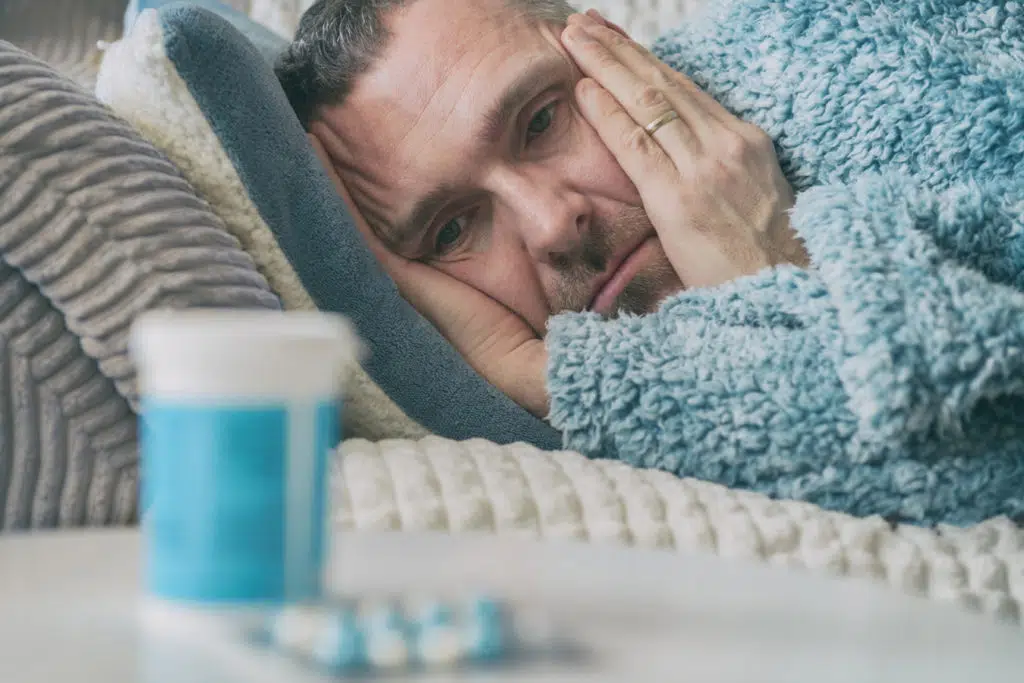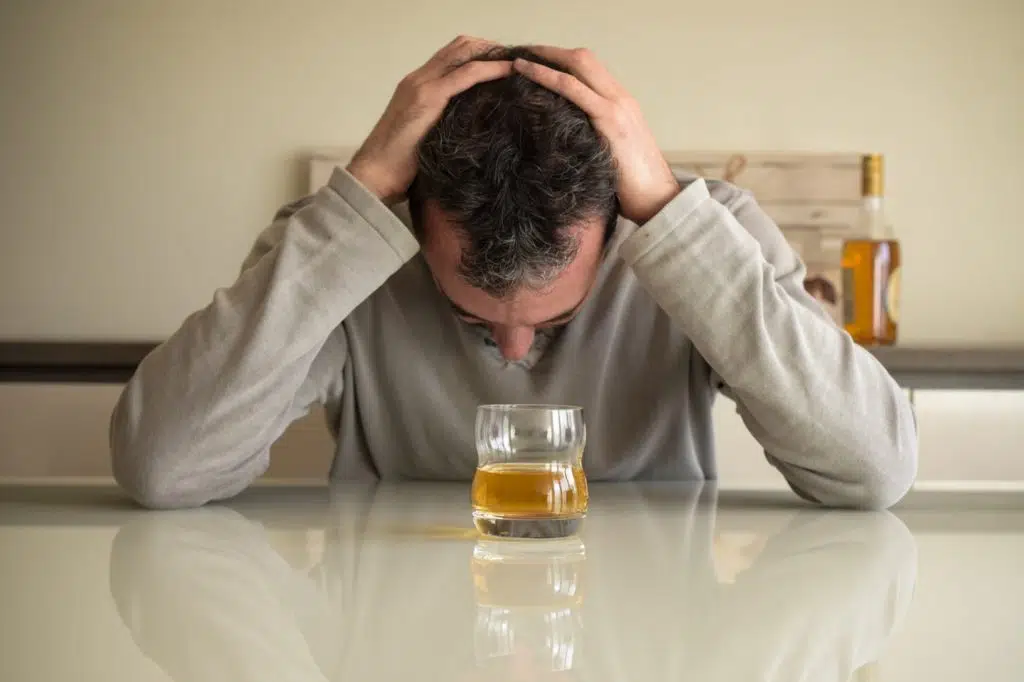About 9.5% of Americans 18 and older are diagnosed with depression each year, with women twice as likely to receive a depression diagnosis. Often, one of the leading ways to alleviate depressive symptoms and get you back to feeling like your usual, happy and functional self is with an antidepressant medication prescription.
Although helpful for many, antidepressants have addictive qualities that increase over time, especially if you take them daily. Addiction to prescription medication is detrimental to your health and wellbeing.
At Miramar Recovery, we believe in providing you with lifelong tools and coping mechanisms to effectively treat depression for good, without the need for prescription medication like antidepressants.
You don’t have to live with the negative symptoms of depression any longer and shouldn’t have to worry about withdrawal from antidepressants; there are better treatment options, and we are here to help every step of the way.
What is depression?
Depression, also known as major depressive disorder, is a mental health condition that affects how you think, feel and act. Although there is no cure for depression, it can be treated effectively to eliminate symptoms.
Symptoms
Some of the most common symptoms of depression include:
- Feelings of hopelessness
- Mood changes
- Insomnia or extreme fatigue
- Anxiety
- Loss of interest in activities you once enjoyed
- Guilt
- Agitation
- Lack of concentration
- Excessive crying
- Weight changes
- Poor appetite
- Obsessive and intrusive thoughts, including those about self-harm and suicide
If you are experiencing any of these symptoms, we recommend seeing a mental health professional for further evaluation. Although many may suggest starting a prescription medication regimen of antidepressants, we believe other alternatives work just as well to curb your symptoms and get you feeling better quickly.
What are antidepressants?
Antidepressants are a class of prescription medication used to treat various mental health disorders, including depression, anxiety, addiction and sometimes insomnia.
They are categorized into six major types:
- Selective serotonin reuptake inhibitors (SSRI)
- Serotonin and noradrenaline reuptake inhibitors (SNRI)
- Tricyclic antidepressants (TCAs)
- Monoamine oxidase inhibitors (MAOIs)
- Norepinephrine and dopamine reuptake inhibitors (NDRIs)
- Non-competitive N-methyl-D aspartate receptor antagonists
Depending on your symptoms, health history and other medical factors, your doctor will choose the best option for your needs. The most commonly prescribed type is SSRIs.
How do they work?
Antidepressants work by balancing chemicals in your brain to stabilize mood and emotions. The goal of antidepressants, regardless of type, is to boost your mood, help you sleep better and reduce any negative symptoms that you may be experiencing.
Although the goal of antidepressants is excellent, they often come with a variety of side effects, such as nausea and vomiting, sexual health issues, fatigue, weight gain, and diarrhea. They are also highly addictive, causing your brain to crave them and rely on them the longer you take them.
The good news is that there are various alternatives to antidepressants to consider before opting for prescription medication.
Let’s explore the top five alternatives to antidepressants.
1. Essential Oils
Scents such as lavender are a great option to relieve stress and boost your mood. Use essential oils as a massage before bed or when you’re feeling bogged down by symptoms. It is important to note that essential oils should not replace your complete treatment plan but instead work with other treatment options such as therapy.
2. St. Johns Wort
This supplement has been used across the globe to help with depression, anxiety, insomnia and PMS symptoms. Talk to your doctor about adding this to your treatment regimen today.
3. Omega-3 Fatty Acids
This powerhouse nutrient works in the same way that antidepressants do without the unnecessary and uncomfortable side effects. They help transmit messages to and from the brain more efficiently and reduce depression symptoms significantly. They have also been shown to boost serotonin levels in the body, boosting mood. You can consume omega-3 fatty acids naturally in fish oil, walnuts or standardized supplements.
4. Melatonin
Nearly 75% of those who are diagnosed with depression have insomnia. Depression can have a detrimental effect on your natural sleep cycle, causing you to often wake during the night or not fall asleep at all.
Melatonin is a natural hormone released by your pineal gland at night to help your body relax and slip into a peaceful slumber. You can supplement your body’s natural melatonin levels by taking over-the-counter supplements.
A simple adjustment and improvement to your sleep cycle can work wonders on your overall depression symptoms.
5. 5-HTP
5-hydroxytryptophan works by changing the serotonin levels in your brain naturally, helping to ease depression symptoms for many patients.
Before beginning a new treatment option, speak with your doctor to determine if it is right for you.
Other ways to boost your mood and overcome depression symptoms include:
- Pet therapy
- Getting adequate sleep
- Exercising regularly
- Practicing mindfulness
- Participating in regular therapy sessions (individual and group)
- Seeking support from your social network
- Diet changes
It is important to remember that everyone responds differently to a treatment. What works well for you may not work well for others. We encourage you to find a balance of options that boost your mood and make your life fuller without the need for long-term prescription medication use.
Prescription Pill Addiction Treatment Close to Home
If you live are currently living with substance use disorder, a mental health condition, such as depression, or a combination of the two, Miramar Recovery offers comprehensive treatment to help with addiction to prescription pills, such as antidepressants. A combination of individualized therapy, group sessions and other comprehensive treatment options will help you reach recovery sooner.




